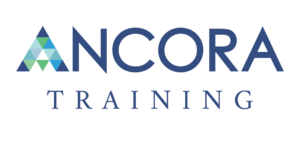No matter how skilled the staff at your medical office is, productivity can falter without proper training and protocols. Healthcare training programs designed specifically for your workplace to help your team develop the skills to do their jobs effectively. Although your primary focus is providing great care to your patients, it is important that your staff is equipped with the knowledge to do their jobs effectively and improve the overall efficiency of your medical office.
It is up to you to give your employees the best chance of success with effective and complete medical office staff training. Proper training can boost staff morale, protect you against liability issues that arise in the future, and lead to the development of your dedicated and streamlined team of healthcare professionals. Here are a few training program ideas and tips that can help up-skill and re-skill your staff.
Develop a Training Plan
Providing effective initial onboarding training and continued instruction will teach your staff new skills and techniques that can increase their efficiency as healthcare professionals. You can either develop your own training program or explore professional organizations that have developed high-quality education-training programs, and can provide instruction to your staff on important procedures and patient care.
There are a variety of programs designed for training healthcare staff. Some programs include:
- Composure Training. Healthcare workers are prone to occupational stress, so this training equips your employees with the skills to work well under pressure and maintain their composure. Staff will train on stress management methods, emergency triage, problem-solving, and conflict resolution.
- Electronic Health Record (EHR) and Technical Training. Technical staff training will help operations run smoothly. Training options will touch on computer skills, medical office equipment, and EHR.
- Customer Service Training. A staff that provides excellent customer service is crucial to patient retention and satisfaction. This training can give your staff the skills to create long-term relationships and rapport with patients.
- Staff Efficiency. Your practice should perform as quickly and effectively as possible. With this training, your staff will train to work without wasting valuable time or inconveniencing patients.
- Legal Compliance Training. Complying with the law is important for your medical office practice. Staff will receive HIPAA training to handle sensitive patient data. Staff will also receive OSHA training to improve workplace safety.
Investing in medical office training helps show your employees that you value them and are rooting for their success. Professional training programs can help improve staff morale, motivation, and job satisfaction, along with increased productivity and performance so your staff can feel confident and competent in their tasks.
Develop Protocols
Develop clear and effective protocols for the procedures and job duties of employees in your medical office practice. Establish your office’s Standard Operating Procedures (SOP), which includes protocols and checklists for you and your staff on daily procedures and specific situations. In addition to your SOP, establish protocols specific to individual staff. Communicate with your employees while developing these protocols so that team members have an understanding of and access to these lists. Consider keeping these protocols in a binder for your staff’s reference and be sure to renew them once a year to keep them up to date. Reviewing protocols allows opportunities for re-training and improving upon procedures that may have become outdated.
Cross-Train Your Staff
Cross-training your entire staff to perform various roles in the office will increase flexibility and confidence in your employees. This could be something as simple as training the office manager to triage certain types of cases or educating physician’s assistants on frequent insurance questions so they can assist patients during their consultations. Cross-training can empower your employees to provide support from within the company rather than overloading a specific group of employees during hectic business hours.
Check-in With Your Staff
It is easy for management to become disconnected from what goes on in the day-to-day life of staff. Find ways to open forums and listen to what staff has to say about their everyday challenges. By listening to your staff, you can implement changes that will more effectively impact the experiences of both staff and patients. You are also showing your staff that you actively listen to them and care about their job satisfaction.
Have regular meetings or daily huddles with your staff with pre-set agendas regarding how you and your team can work together and provide a better experience to current and future patients. Your agenda should be centered around attainable goals, employment needs, and the improvement of patient care. Making these meetings interdepartmental can also help employees from various teams be on the same page. Start your day or week off with open and productive conversations about work and expectations.
Your medical office staff is essential to your clinic’s success. Make proper job training a priority and make your staff your biggest asset by incorporating effective healthcare training and productivity-boosting routines.
